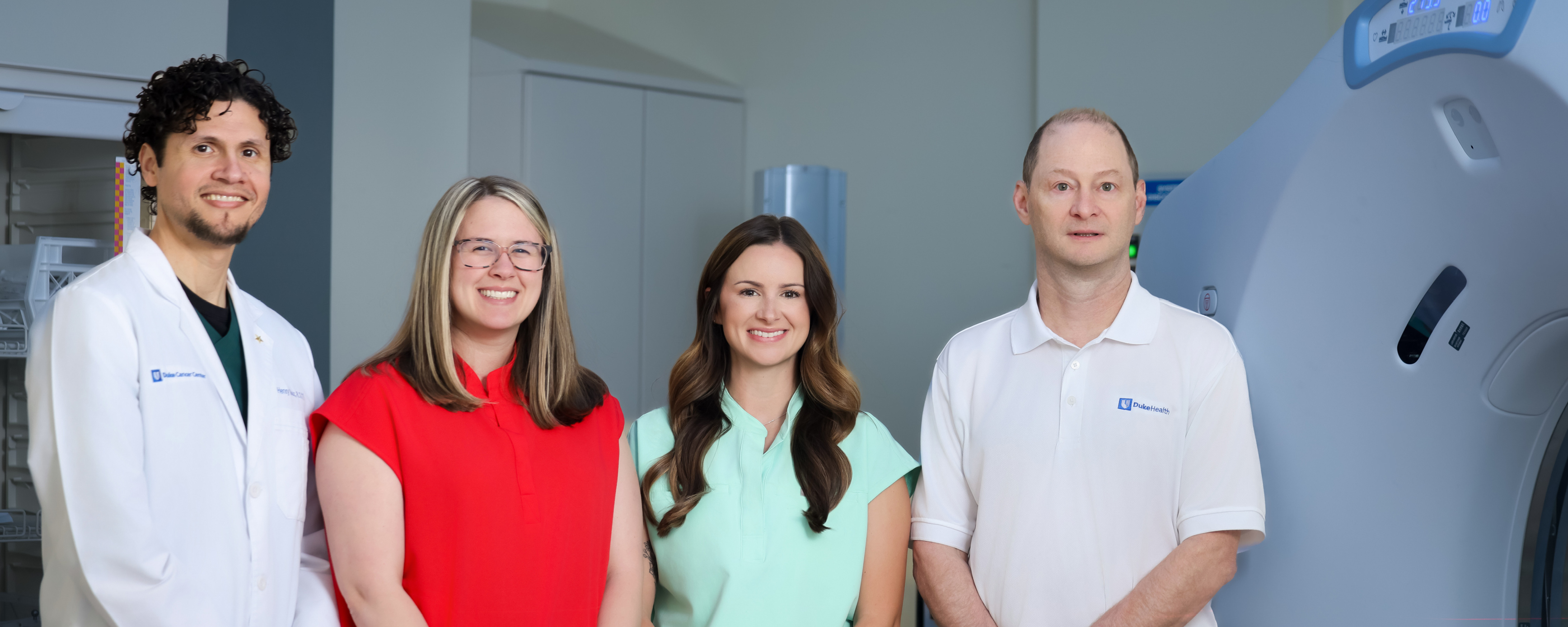
The current application cycle is closed.
Accreditation
We have submitted the needed documents to the Joint Review Committee on Education in Radiologic Technology (JRCERT), which promotes excellence in education through the application of professional standards that endorse academic integrity and quality, as well as exemplary health care, through the accreditation of educational programs in radiography, radiation therapy, magnetic resonance and medical dosimetry. As a new program, the maximum length of an initial accreditation award granted by the JRCERT is three years.
JRCERT
20 North Wacker Drive, Suite 2850
Chicago, IL 60606-3182
(312) 704-5300
mail@jrcert.org
Program Description
Mission Statement
The mission of the Duke Radiation Therapy Program is to provide the highest-quality education in standard and advanced techniques in radiation therapy technology. Through this education, the program seeks to develop critical thinking, communication and technical skills necessary to deliver the best care. Upon completing the program, graduating students will receive a certificate and be prepared to meet the requirements for an entry-level position as a radiation therapist.
The Duke Radiation Oncology Therapy Training program is a 12-month certificate in radiation therapy technology. After completing this program and passing the American Registry of Radiologic Technologists (ARRT) exam, it would allow a graduate to become a licensed radiation therapist and a key member of the radiation oncology team responsible for the daily delivery of radiation treatments for cancer patients.
The radiation therapist position is in high demand and essential for Duke Health’s continued ability (and growth) to deliver radiation treatments to cancer patients. This new program aligns with Duke Health’s mission of providing education for many allied health professions. As a national leader in medical education, providing a foundational education program for entry-level radiation therapists augments the educational mission of Duke Radiation Oncology, which currently has leading education programs for medical residents, medical physics residents, graduate and medical students and other allied-health professionals.
The Radiation Therapy Program continues Duke Radiation Oncology's tradition of educational excellence. It will produce graduates who are steeped in the highest-quality patient care techniques. Our institutional culture is built upon the Duke Health System values of Excellence, Integrity, Teamwork, Respect and Innovation.

The Radiation Therapy Program will provide the foundation for developing the curriculum and is based on the American Society of Radiologic Technologists (ASRT) guidelines. The objectives of this program complement the philosophy, mission statement and institutional goals of Duke University Health Systems. We pledge to provide expert, compassionate and prompt clinical service to our patients; to generate new knowledge concerning the causes, prevention and treatment of cancer; and to transmit new knowledge from our clinical experiences while becoming a globally preeminent academic radiation oncology department. Moreover, we strive to be recognized for exceptional clinical care, conducting and reporting important research and practicing effective teaching. As one of the country's largest and most active academic radiation oncology programs, we embrace our responsibility to the public we serve.
The Duke University Health System's objective for the radiation therapy concentration is to provide a sound foundation for developing knowledge and skills pertinent to a practicing entry-level radiation therapist.